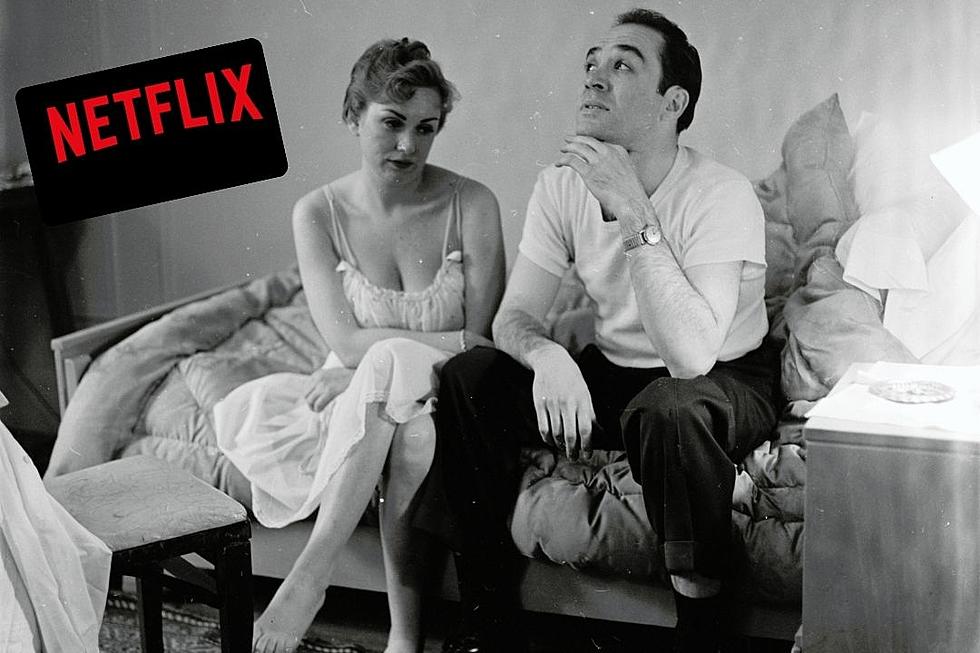
‘Transparent’ Season 3 Review: The Most Aching and Ambitious Season Yet
Mild spoiler alert for all 10 episodes of Transparent Season 3.
Early on in the third season of Transparent, Judith Light’s Shelly interrupts the family chatter at Maura’s (Jeffrey Tambor) birthday dinner to make an announcement. “I too have transitioned,” she says with the glee of a school girl giving the correct answer in class. “I’m coming out! I’m a brand!” she shouts with arms raises high after sharing her social media handles. The camera holds on the reactions of Maura, her girlfriend Vicky (Anjelica Houston), and her friends Davina (Alexandra Billings) and Shea (Trace Lysette) as they shoot glances of shock and shade in Shelly’s direction. Three of those four women understand the weight of coming out, but here Shelly exploits it for her own narcissistic pleasure. But what, exactly, is coming out? Who’s allowed to do it? And once you come out, then what?
Jill Soloway’s Amazon series cracks those questions open this season and wades into the uncomfortable, messy territory where there often are no clear answers. Now three seasons deep, Transparent is beginning to not only question the multifaceted identities that come with being queer or trans, but also every other facet of identity that makes up the Pfeffermans. This year the show asks what it means to be Jewish, to have faith in a higher power, to be a survivor of abuse, to be a father, a mother, and especially, a woman. While the first two seasons explored Maura’s coming out and the rippling effects it had on her family, Season 3 looks at when those ripples become tsunami waves. Shelly paraphrases it best in a speech she gives at temple saying, “When one person transitions, the entire family transitions.” It’s a commonly cited phrase in the trans community, and this year it lays the groundwork for what is the series’ most aching, most profound and most ambitious season yet.
As the season gets deeper into Maura’s gender transition – at many points, the show brilliantly questioning what “transitioning” means and challenging the traditional trans narrative of medical transition – it opens up the past wounds of the surrounding characters. The season expands the score, digging deeper into the larger cast of characters to explore how coming out means more than simply announcing your gender or sexuality, but to admit and face their deepest secrets, pains and truth. For Maura it’s admitting that, while she’s gotten love and acceptance, she’s still unhappy. For Josh (Jay Duplass) it’s succumbing to depression and confronting the sexual abuse of his past. With Shelly it’s understanding why she’s been drawn to secrecy her whole life. For Ali (Gaby Hoffmann) it’s questioning the larger framework of minority identities beyond her own. For Sarah (Amy Landecker) it’s unleashing a rage she’s kept caged away. Season 3 focuses on this idea of coming out of your shell, a theme that’s a bit too on the nose with a turtle subplot in “To Sardines and Back,” but nonetheless a poignant one that comes full circle by the season’s triumphant, dazzling finale.
Transparent has always rode the line between drama and comedy well. It’s juggled weighty topics with sharp dashes of humor that all somehow blend smoothly into taut and unhurried 30-minute episodes – if anything, Transparent is a testament to how much can be accomplished in a mere half-hour episode (television writers, take note). But in Season 3 Soloway’s series has evolved into something that feels like more of a drama than previous seasons. While the comedy is still present (often courtesy of Light), this is a season that hurts. After the first three episodes, the breeziest of the season, the series takes a plunge into much heavier territory. After finishing the new season in less than 24 hours, I’d recommend taking your time with Transparent this year, so you can process one episode at a time. It’s full of intense and complex topics, emotional exchanges and dialogue that hits like a punch to the gut.
The middle of the season is the strongest and darkest with Episodes 5 through 8, which track the Pfeffermans at the peak of their breakdowns. In “Oh Holy Night,” Sarah, earning the title of the most reprehensible Pfefferman this season, hosts a community Jewish get-together with the help of Raquel (Kathryn Hahn). Named “Hienni,” Hebrew for “Here I am,” the event is mainly Sarah’s attempt to appropriate and hipsterize Judaism for her own faux-spiritual gain. Everything that could trigger upset for the characters in this episode inevitably happens. First Josh learns devastating news, causing Shelly to react in her typical operatic hysteria. Ali gets in an argument with Leslie (Cherry Jones) who prompts a heated Israeli-Palestine debate with a group of volunteers. Raquel is put in a compromising situation when Josh unloads his grief on her. It’s a quintessential Transparent episode, bringing the family under one roof for a collision of fraught emotions. It’s also the best episode of the season, followed by “If I Were a Bell,” a flashback episode to Maura as a 12-year-old (played stunningly by transgender actress Sophia Grace Gianna) written by Our Lady J and directed by Andrea Arnold.
This season Soloway and her writers find plenty of opportunities to unpack important and challenging conversations around gender and trans identity. “The Open Road” finds a brewing intimacy between Josh and Shea during a road trip that culminates in them running breathlessly through an empty, drained waterpark in the middle of nowhere (there’s seems to be plenty of symbolism to unpacked here on transient pleasures and theme park escapism). But their budding connection suddenly jerks to a stop when Josh offensively praises the benefits of sleeping with Shea: the fact that he can’t get her pregnant. Lysette breaks into an explosive, gut-wrenching monologue calling out his insolence and the fetishizing of her body. It’s a phenomenal episode that uncovers just some of the to the realistic problems trans women face while dating straight cis men and it never comes off didactic or box-checky. The episode gives agency to a trans character played by a trans actress in one of the most brutally honest and authentic performances of the series so far.
Transparent explores similar problems of cis-trans relationships again in “Life Sucks and Then You Die,” (how great of an episode title is that?) when Maura and Vicky’s relationship is tested by Maura’s sister Bryna (Jenny O’Hara). The couple’s previous disagreements about Maura’s decision to get surgery reach a climax when a drunk Vicky sides with Bryna telling Maura, “But you’re perfect the way you are.” It’s a familiar response for trans and gender non-conforming people when cis partners or relatives struggle with understanding the necessity of medical transitioning.
But what’s most beautiful about Maura and Vicky’s fight, and what makes Transparent one of the best written shows on television, is how it never defines one person as wholly right or wrong. Maura has reason to be hurt by Vicky, yet Vicky’s perspective is also a very human one. There’s no explicit bad guy or hero is this series; everyone’s ugly, selfish, and callous behaviors become reflective of own own biases. Transparent never shies away from revealing its characters at their absolute worst, and without judging them, attempts to grapple with the traumatic sources behind those attitudes.
Yet where Transparent excels at telling powerful queer narratives, it fails at additional inclusivity. That seems to be something Soloway is at least partially aware of, as shown by Ali’s storyline around intersectionality. While TAing a class on the Holocaust and feminism, Ali admits she’s hesitant to include works by authors of color for fear of “getting in trouble,” followed by a black woman calling out her white fragility. This anxiety culminates in two bizarre hallucination sequences where Ali’s stuck in a game of Wheel of Fortune with Caitlyn Jenner and author Ntozake Shange trying to guess god’s gender and race. The sequences are hilarious on their own, but ultimately don’t amount to anything of substance. Beyond the first episode, which casts Alexandra Grey as a trans women of color contemplating suicide, the only explorations of race are surface-level or subtextual. Like Ali, Transparent just tosses its hands up in a giant “Oh well!” emoji, safely poking at the difficulty of tackling race from a white perspective, while never actually tackling it.
One of the show’s biggest setbacks is that it often explores diversity through the lens of not-so-diverse characters. We’re only ever going to get Ali’s perspective on race unless Soloway introduces a prominent character of color. And beyond the frame, there’s still the giant elephant in the room: a cis actor is playing a trans woman. Soloway and Tambor both dedicated their Emmys speeches to this, advocating for an end to the cis-folks-in-trans-roles pattern. And while Soloway has made history casting trans actors, hiring over 50 trans and GNC crew members, and introducing an intersex character (played by Pidgeon Pagonis) this season, it’s disappointing that the actual trans performers are still on the fringes – Shea’s episode is partially an exception, but the episode ultimately cuts back to focus on Josh’s sorrows, another sad white cis dude. Maybe it’s asking too much of Transparent to cover all the bases, but there’s surely room for it to grow, and other series to learn from it.
Yet its shortcomings are also what make Transparent the most fundamentally human series on television. Over three seasons filled with pockets of sorrow and heartbreak, the show feels as vulnerable and questioning as its characters are. As we watch the Pfeffermans harness the courage to face and learn from their deficiencies, so does the series. I have a feeling that Transparent will only get better each season, and continue to be the best thing on TV.
Additional Thoughts:
- This season’s MVPs are Judith Light and Kathryn Hahn, two women who should both be holding Emmys come next fall. Light’s Shelly slowly blossoms this season, and her funniest moments blend into her most tragic. Hahn continues to brilliantly squash Raquel’s grief and discomfort with forced awkward smiles until she breaks in two emotional scenes, one quiet and trembling, another fierce and turbulent.
- Fun fact: Nacho, Josh’s pet turtle, may be based on a true story.
- I love how intertwined the flashback casting is; Emily Robinson is both young Rose and teenage Ali, and “If I Were a Bell” made a perfect choice in casting Hoffmann as the adult version of Rose.
- The direction the series takes with Maura in the season finale, I admit, has left me a little uneasy. Without spoiling too much, an unexpected turn of events hints at a new path for Maura’s gender expression (see Landecker’s comments on that), and while I wholly welcome it as a smart move to explore a possibly non-binary identity, it feels a little unfounded for her character Where have we seen hints of this before? Is the series dismissing the importance of gender-reassignment surgery? And my worst thought, is this a way to keep Tambor in the role? I hope not.
- This show knows how to use music. Last season The Alabama Shakes were the emotional core and this year Tune-Yards, Usher (a perfect/hilarious strip club song), and Alanis Morissette, are top-notch choices.
Transparent Season 3 is now streaming on Amazon Prime.
More From K-Fox 95.5










